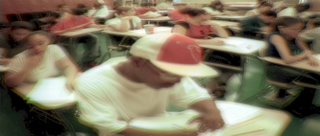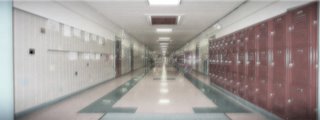The last post generated a lot of conversation, which is great. It raised a lot of questions. Also great. I think we need to keep the discussion going…
What does it mean to read? What does it mean to read a book?
In our "Western World" we believe – somewhat automatically – in a couple of things. We believe in what I  have come to call "Individual Print Literacy," which is to say that we believe that typically the best way to get recorded information into your brain is to sit by yourself and look at ink that has been applied to paper. Our entire primary school system is based on this belief. Our entire higher education is based on this belief. In between (secondary) – possibly because of the intense difficulty we have trying to keep adolescents engaged – we bend just a little, allowing the occasional recording, audio or video, or letting students read digitally created versions of ink applied to paper.
have come to call "Individual Print Literacy," which is to say that we believe that typically the best way to get recorded information into your brain is to sit by yourself and look at ink that has been applied to paper. Our entire primary school system is based on this belief. Our entire higher education is based on this belief. In between (secondary) – possibly because of the intense difficulty we have trying to keep adolescents engaged – we bend just a little, allowing the occasional recording, audio or video, or letting students read digitally created versions of ink applied to paper.
We also believe in "Alphabetic Decoding." We have constructed a code system for our language that is dependent on random symbols to which some meaning has been applied. These meaning might be sounds if our language is phonetic – Spanish, Italian, Portugese, German, Czech, or they might be much less obvious than that if we're stuck with French, English, Irish, or Polish, but either way, we believe that "the best" way to get information is through code-breaking of this particular kind.
Not everyone on the planet, obviously, has made the same decisions. Many societies have adopted various kinds of "group literacy," where people read together. Consider, for example, the lack of books in Catholic worship (as opposed to Protestantism and Judaism). In Catholicism literacy has traditionally taken many forms that somewhat mirror those famous "seven intelligences." Worship (and thus teaching) involves hearing speech (stories are told), hearing music (rhythm, rhyme, etc), movement (re-positioning the body), visual arts (those windows, sculptures, etc), smell (incense), and on and on.
Or think about the way news is moved through traditional African villages, or in traditional Native American societies.
Other societies have structured writing in different ways as well. Hieroglyphics, pictograms, graphic novels, wall paintings, even those wordless Ikea instruction sheets have all decided to move recorded information in ways other than alphabetic decoding.
This has huge issues for education. The National Assessment of Educational Progress (NAEP) shows, essentially, zero progress over 35 years of reading assessment, with a stunningly low percentage of US students proving to be high-level readers. This time span covers the full-circle of traditional educational strategies. 6% of American 17-year-old read very well by this measure. Only 38% of those tested read at any level that could be called "proficient" – that is, the ability to read, understand, and assemble the ideas. And remember, at least 13% of US students drop out of high school and do not take this kind of test at all. If we assume that those dropping out might do worse on these tests than those in school, we probably have an American reading proficiency rate of between 30% and 33%.
 The general response? Do the same thing we've been doing but do it more! Emphasize phonics, for example, which, of course, do not work in English (ok everyone, why is it that Come Home doesn't rhyme?). Make kids spend far more hours holding books that they cannot read in their hands. Deny those students every other educational opportunity (history, math, art, music) while waiting for them to magically start reading.
The general response? Do the same thing we've been doing but do it more! Emphasize phonics, for example, which, of course, do not work in English (ok everyone, why is it that Come Home doesn't rhyme?). Make kids spend far more hours holding books that they cannot read in their hands. Deny those students every other educational opportunity (history, math, art, music) while waiting for them to magically start reading.
My suggestion is different. Re-define reading. Reading is, to me, getting information from a recorded source into your brain. Writing is getting information from your brain into a recorded form. The art of this, and where I think instructional time should best be expended, is on the comprehension and structure and concept assembly side of this. The code breaking will come if it will (I've met few people happy with the fact that they cannot read), but meanwhile students can advance in every other skill area, and guess what? They can stay interested in education.
Because listen, does the method of reading matter? As one commenter on the last post asked, "If I take a test on Moby Dick in my English class, and get an A, having listened to it instead of reading it, how can someone argue that I don't understand the story?" Or, as I always point out, does it make James Joyce any less my favorite author that I have not "read" (ink on paper) one of his books but listened to them all? Does it make my writing less interesting if you know that I dictated it using ViaVoice?
I just need to let people know that I am not against literacy or reading or books. I love these things. I love them so much that I want the possibility of this communication system opened up to everyone. I truly believe that if students are allowed to read by interest rather than codebreaking capability they will be more interested in reading, and might pursue it with more energy. I know (from my own research) that students who use computer literacy software (which highlights the words as they are read) show dramatic improvements in sight-word recognition skills and I am beginning to see some strong evidence that students who dictate to their computers (thus seeing correctly spelled words appear as they say them) show improvements in both sight-word recognition and spelling. If the codebreaking potential is there, these systems will help, and if they are not there – for whatever reason – than these alternative systems are a lifeline.
One very sincere commenter said, "Of *course* I want people to read how I do: by looking at the words, recognizing what they mean (or looking them up if one doesn't), and recognizing how the words fit together. You may as well be complaining that I want all people to breathe the way I breathe (i.e. with an intake of air into the respiratory system, where the oxygen is transferred to the blood stream via the alveoli, etc)." And yes, the world would be "easier," especially for teachers, if this were true. But not everyone can breathe in the same way. Some need machines. Some need specially cleaned air. Some need different oxygen mixes. Some even need tracheotomies. And not everyone will "intake information" the same way either. Our goal, as a society, is to turn the technology we have developed into powerful tools capable of helping all students learn, while we help them to learn the way they need to learn, and how to pick the tools that will help.
- Ira Socol
 But now there is some hope. I still want one of you computer geniuses out there (c'mon, you guys are all over the place) to update FoxyVoice because nothing was better for kids, but FireVox now has a simple install, and instructions are much better.
But now there is some hope. I still want one of you computer geniuses out there (c'mon, you guys are all over the place) to update FoxyVoice because nothing was better for kids, but FireVox now has a simple install, and instructions are much better.





